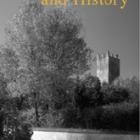Hawes, Richard. “The Municipal Regulation of Smoke Pollution in Liverpool, 1853–1866.” Environment and History 4, no. 1, (Feb., 1998): 75–90. doi:10.3197/096734098779555718. Overcrowding and epidemic disease helped to promote tremendous municipal sanitary activity in Liverpool from the late 1840s, including an attempt to limit smoke pollution. A smoke prevention committee supervised the work of two specialist inspectors and maintained detailed minutes. These show how councillors decided that ‘black smoke’ was preventable. The council offered advice on smokeless fuels, furnace design, and other improvements, but much time was spent confirming the prosecution of offenders. Appearing before the magistrates were not only the owners of steamships, glass factories, bakeries and breweries, but also poor law officers, hospital workers and the council’s employees. Prominent individuals such as David and Charles McIver, founders of the Cunard Company, and Henry Tate also appear. Although public health matters explains some of this involvement, the need to protect the city’s new public buildings was more frequently emphasised. Sadly, the end of the minutes in 1866 makes it difficult to discover the duration of such regulation, and by the late nineteenth century, Liverpool was becoming notorious for its polluted atmosphere. All rights reserved. © 1998 The White Horse Press
"The Municipal Regulation of Smoke Pollution in Liverpool, 1853–1866"
Hawes, Richard | from Multimedia Library Collection:
Environment and History (journal)


